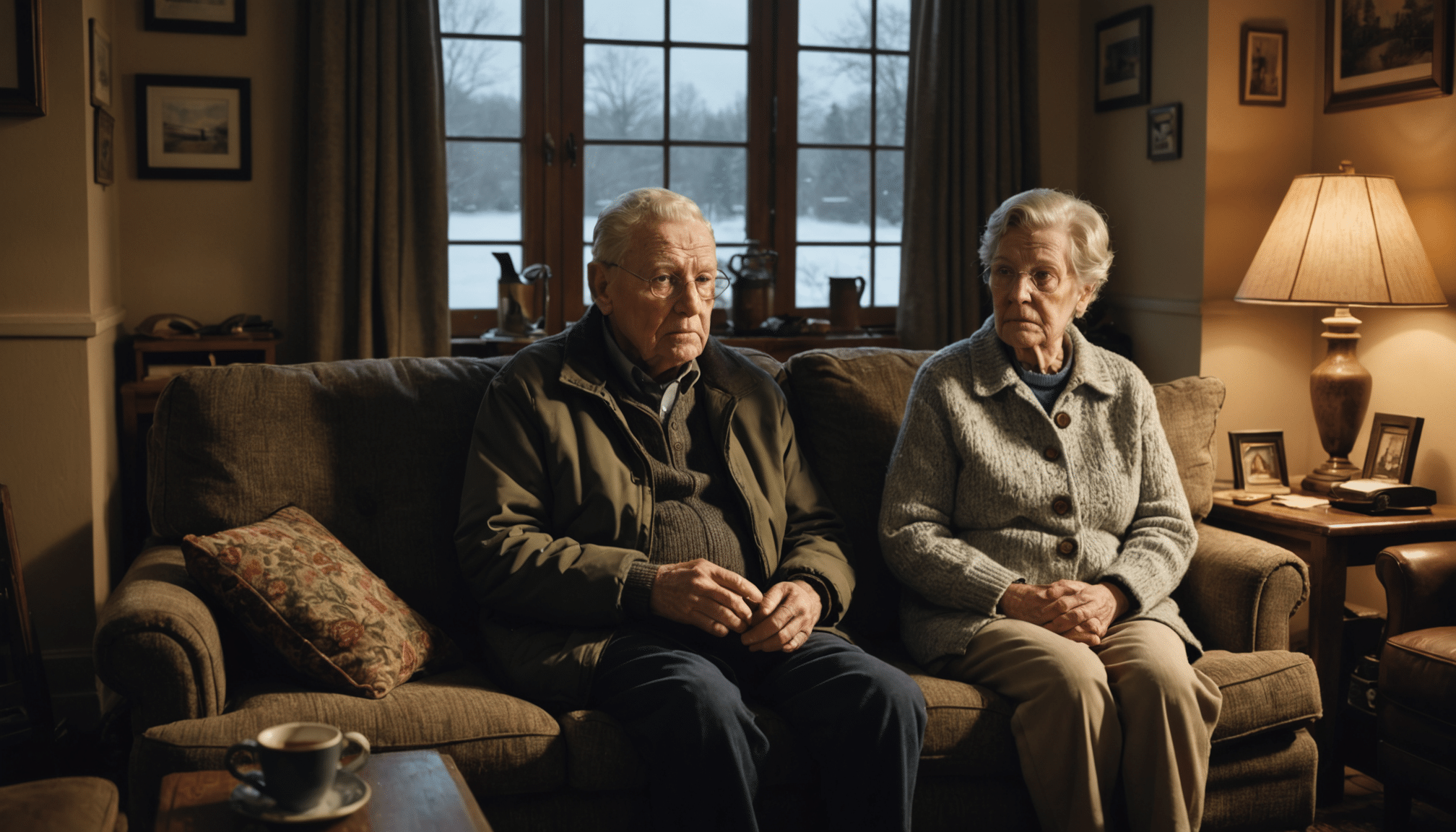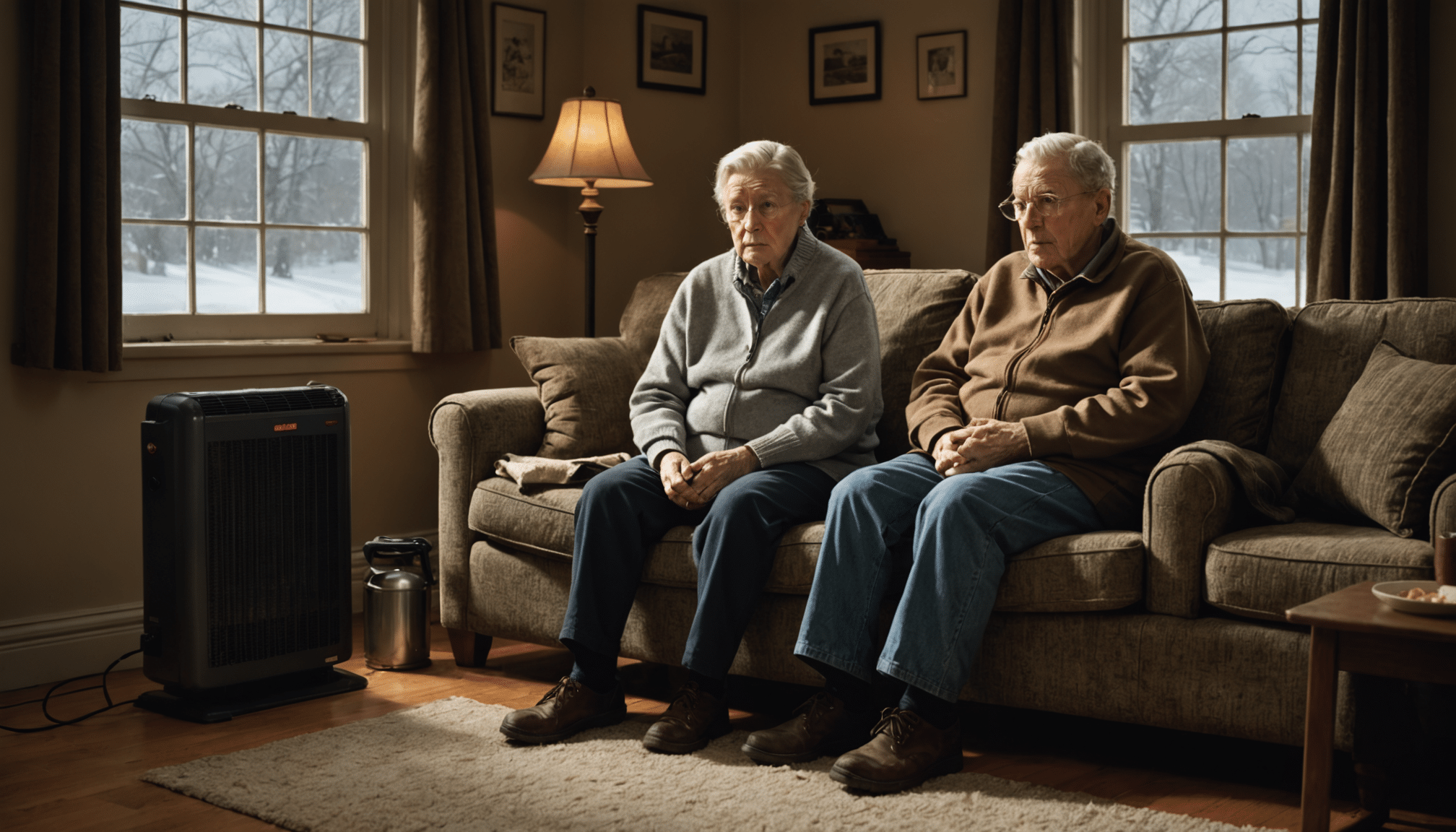More than 2.5 million retirees are currently deprived of Winter Heating Assistance, struggling to survive below the financial threshold required to lead a decent existence. This situation highlights the growing challenges faced by the elderly, often vulnerable, who struggle to meet basic needs such as heating their homes. The repercussions of this deprivation are alarming, suggesting a genuine need for reevaluation of public policies to ensure the dignity of our seniors, even during the winter months.
More than 2.5 million retirees find themselves in a precarious situation, despite their exclusion from Winter Heating Assistance. According to an analysis by the Centre for Ageing Better, one in four retirees aged 65 years and older is considered too wealthy to qualify for help with their energy bills, while being too poor to live decently, according to the Minimum Income Standard set by poverty experts. This figure rises to 29% for those aged 74 years and older. The situation is particularly alarming for retirees with health conditions or those living in rented accommodation, thereby increasing the risks of distress in winter due to insufficient income to heat properly.

Table des matières
ToggleMore than 2.5 million retirees deprived of Winter Heating Assistance
Currently, more than 2.5 million retirees find themselves in a precarious situation, deprived of Winter Heating Assistance. This lack of financial support forces them to live on incomes below the threshold necessary to maintain a dignified quality of life. This alarming phenomenon draws attention to the increasing inequalities faced by this population, often neglected by solidarity policies. Moreover, these retirees must contend with high energy bills, further exacerbating their financial vulnerability.
The consequences of the lack of support
The repercussions of the removal of Winter Heating Assistance are dramatic for many retirees. Indeed, this assistance served as a lifeline, allowing the elderly to maintain a level of comfort in their homes. By losing this assistance, these retirees often have to choose between heating and covering other basic needs, leading to a spiral of precariousness. Studies show that a significant portion of them suffers from health issues that could worsen with unsuitable living conditions, thereby jeopardizing their overall well-being.
A call for help for vulnerable populations
In light of this alarming situation, a call is made for strengthening assistance for retirees. The need for rapid intervention by public authorities is becoming increasingly urgent to prevent a worsening of inadequate housing and energy poverty, particularly for the elderly. It is crucial that decision-makers recognize the urgency of the situation and consider sustainable solutions to ensure a dignified life for all retirees, notably by revising current financial allocations.
The alarming reality of struggling retirees
More than 2.5 million retirees find themselves in a precarious situation, deprived of Winter Heating Assistance, and must cope with incomes that do not allow them to live with dignity. This silent tragedy reflects a broader issue: that of energy poverty affecting many elderly citizens, often invisible in public discourse. These individuals, who have contributed to society their entire lives, now face alarming poverty, not by choice, but out of necessity.
Government decisions aimed at restricting access to these aids increase the risk of illness and deterioration of quality of life among the most vulnerable. This phenomenon affects not only the elderly individuals but also has repercussions on public health, social services, and even the national economy. Indeed, a retiree unable to heat properly is a citizen whose well-being deteriorates, leading to additional costs for health and social security systems.
It is imperative that the state takes responsibility and reconsiders its choices regarding social assistance. The absence of support for needy retirees represents an unacceptable breach of commitments to those who have built our society. A radical policy change is necessary to restore dignity to the elderly, ensure their access to a healthy and secure home, and protect them from the rampant inflation of energy prices.
The time has come to act. A national strategy that includes concrete and adapted measures for retirees could make a significant difference, improving their quality of life and reducing the accumulated risk of inadequate housing and suffering. Society has a moral duty to act for the welfare of its seniors.








